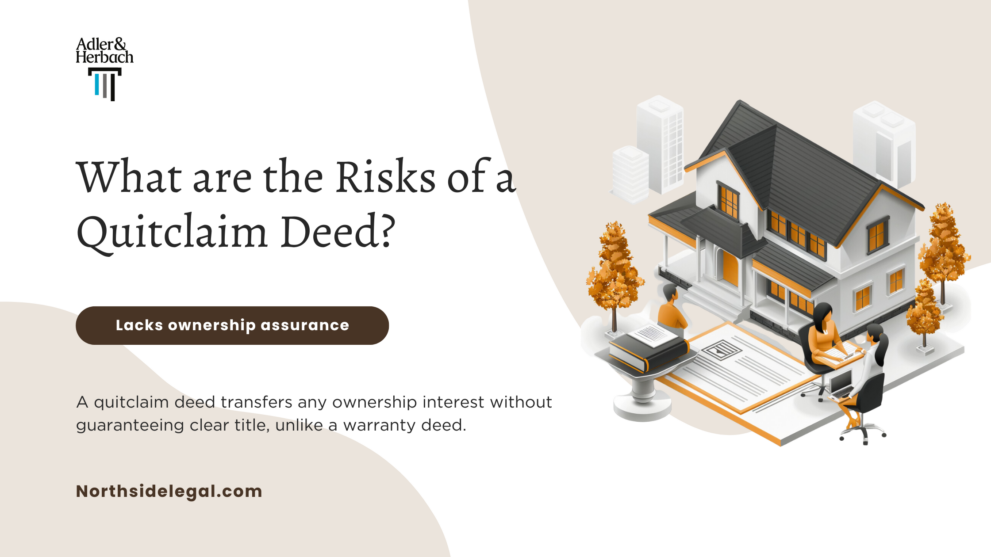While a quitclaim deed should not be used for the sale and purchase of a property, there are situations in which a quitclaim deed is useful and appropriate.
What are the Risks of a Quitclaim Deed?
A quitclaim deed does not provide any assurance that the grantor (the person transferring the property) has free and clear title to the property. In fact, it doesn’t even represent that the grantor has any interest in the property whatsoever. Instead, this type of deed simply “quits” (or coveys) any interest or rights that the grantor may have in the property. This is in contrast to a general warranty deed, where the grantor warrants and guarantees that he or she is the rightful owner, has the legal right to transfer free and clear title and will defend the grantee against third-party claims on the property.

Find Your Home’s Maximum Value with Our Essential Seller’s Guide!
Tailored exclusively for home sellers seeking to navigate the market with confidence and secure the best possible deal.

- Top 12 Estimators Unveiled: Cut through the clutter with a curated comparison, empowering you to choose the right tool without hassle.
- Clear, Actionable Insights: Simplified breakdowns translate complex tools into actionable knowledge, accelerating your journey to the right price.
- Strategic Pricing Mastery: Master the art of pricing, ensuring your home stands out to buyers while maximizing your profit.
- Tested and Proven Advice: Benefit from real-world assessments and proven strategies that streamline your sale, from listing to closing.
- Trusted by Your Neighbors: Join a community of local homeowners who’ve turned insights into action and success.
- The Key to a Lucrative Sale: Equip yourself with insider knowledge that transforms the selling process, ensuring you walk away with more.
Should I Accept a Quitclaim Deed?
In light of the above, you should never accept a quitclaim deed if you are buying real estate from an unrelated seller. The reason for this is that a quitclaim deed offers you no protection or assurance as to what, if anything, you are buying. While a quitclaim deed is not appropriate in a normal sale and purchase, there are many situations in which a quitclaim deed is quite useful.
Learn more about
When Should a Quitclaim Deed be Used?
Quitclaim deeds are generally used to transfer an interest in a property outside the context of a real estate sale. Some examples of this are:
- Transferring a property to a family member or living trust for estate planning purposes
- Adding a spouse to the title of your home when you get married
- Relinquishing the property ownership of one spouse in the event of divorce
- Clarifying that a party does not have an interest in a property to clear a cloud, or uncertainty, on title


